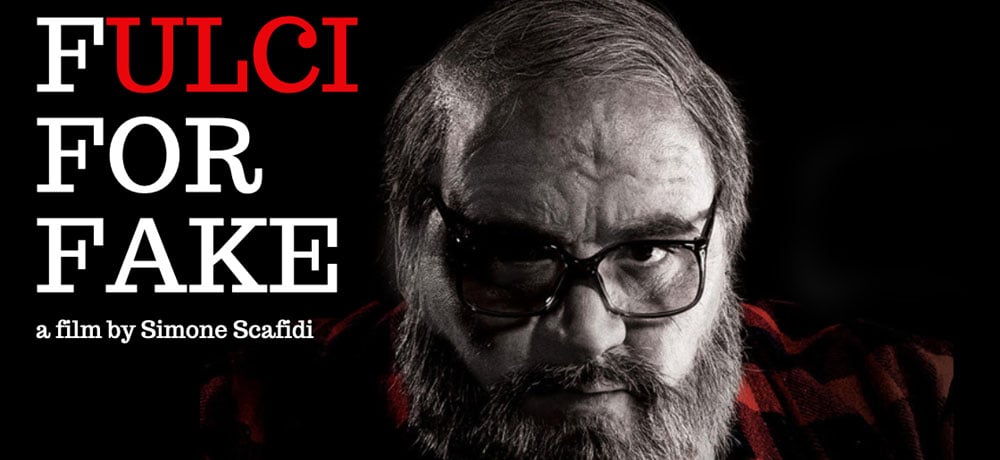


Lucio Fulci is one of my favorite filmmakers. His movies, particularly his thrillers of the 1970s and his horror films of the 1980s, are beautiful and bloody and enigmatic. The man himself is just as much an enigma: he was a prolific director of comedies and westerns before transitioning to gialli and, eventually, some of the most hardcore horror films ever made. His life is marked by illness and tragedy, events which no doubt inform his work. He was known by those who worked with him as a tyrant and a grouch, a spirited collaborator and gifted artist. But who was Lucio Fulci really? This is the question at the center of Fulci for Fake, director Simone Scafidi’s fascinating documentary and the first biopic ever made about the maestro of Italian horror.
Combining interviews with friends, collaborators, and family members (including both of his daughters) with actual home movie footage and newly-shot reenactments in which an actor (Nicola Nocella) plays Fulci, Fulci for Fake attempts to piece together the filmmaker’s true identity and parse out just how he came to create such singular, nightmarish visions for the screen. At this, it is mostly successful, whether it’s observing the pivot to horror following his wife’s suicide or the ways in which the plot of The New York Ripper mirror tragic events in his own life around the same time. These connections to his own work are inconsistent, however, and not what the doc is ultimately about. Fulci for Fake wants to understand the man more than the artist, and in understanding who he was as a person, we are hopefully brought closer to understanding his films.
There are, of course, aspects I wish the documentary had handled differently. The conceit at the center, about Nocella attempting to inhabit Fulci’s skin as a means of understanding him, adds up to little more than a filmmaker’s conceit. It makes for an interesting framing device and helps focus the major questions at the doc’s center, but is mostly just window dressing at best, and at worst puts too much of the focus on Nocella instead of Fulci. Including clips from Fulci’s film as they’re being discussed would provide some valuable context, but I suspect either a rights issue prevented the filmmakers from doing so or that director Scafidi didn’t want the work speaking for itself. He wants us to understand Fulci through those who knew him.
As a pretty rabid Lucio Fulci fan, I could easily sit and listen to talking heads discuss his life and work for any amount of time. This is a documentary designed more for me than for the casual fan, which I mean as a compliment. It’s a deep dive film for those willing to take this deep a dive. I came away from Fulci for Fake with an even greater appreciation for the master of horror, something I wasn’t even sure was possible. It humanizes him while at the same time enriching his work through biography. For fans of Fulci, it’s essential viewing.
Rating: 3.5/5